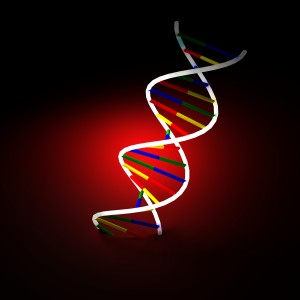 CAMBRIDGE, England – In what appears to be a serious setback for evolutionists, a team of researchers from Cambridge University discovered that DNA and the way it is affected by modifications are much more complex than previously thought.
CAMBRIDGE, England – In what appears to be a serious setback for evolutionists, a team of researchers from Cambridge University discovered that DNA and the way it is affected by modifications are much more complex than previously thought.
A group of scientists with the University of Cambridge recently published a report in the journal “Nature Structural and Molecular Biology,” in which they describe their findings on epigenetic modifications. Epigenetics is the study of how genes in organisms are switched on and off.
The researchers’ journal article, titled “Identification of methylated deoxyadenosines in vertebrates reveals diversity in DNA modifications,” explains how different modifications affect DNA. Their research resulted in the discovery of a new form of genetic modifications and also led them to the conclusion that the genome is more complex than they anticipated.
“We found it surprising that so little attention has been given to direct epigenetic modifications,” the scientists wrote. “In order to determine if there are in fact no other modifications, we used dA6m as an example and discovered that the higher eukaryotic genome is more diverse than previously thought.”
Not only is the genome more complex than previously thought, but the number of modifications that affect it is higher than predicted.
“Direct DNA modifications might be more widespread than previously thought,” the team’s journal article abstract says.
A statement from the University of Cambridge further explained the significance of the scientists’ findings but also noted that these discoveries likely only scratch the surface of epigenetic modifiers.
“It’s possible that we struck lucky with this modifier,” said Dr. Magdalena Koziol, who was on the research team, “but we believe it is more likely that there are many more modifications that directly regulate our DNA. This could open up the field of epigenetics.”
Why are these findings noteworthy? Dr. Jeffrey Tomkins, a geneticist with a Ph.D. from Clemson University, says they are significant because “the language systems in the genome continue to reveal nothing but unimaginable complexity”—something he sees as a “complete contradiction to evolutionary predictions.”
“One of the problems with studying epigenetics is dealing with its overwhelming complexity,” Tomkins wrote in an article last week on the Institute for Creation Research’s website. “The genetic code comprises the ordered sequence of nucleotide letters A, C, T, and G, but the histone code has over 100 different letters (chemical tags) in its alphabet. The epigenetic code for the DNA itself was thought to be much simpler—the only major modification seemed to be whether a methyl group was attached to a cytosine (C). However, this new discovery indicates that many more DNA modifications exist in human, mouse, and other vertebrates than previously believed.”
The bottom line? The genome continues to show evidence of complexity and precise design.
“While the prevalence of this new genetic code in the DNA seems to be less common than cytosine methylations, the unexpected linguistic complexity of this epigenetic tag is anything but simple,” Tomkins wrote. “As scientific discovery advances in the field of genomics, the genome and its diversity of elaborate interlocking languages speaks of vast levels of intelligent bio-engineering, not purposeless random evolution.”
Become a Christian News Network Supporter...


